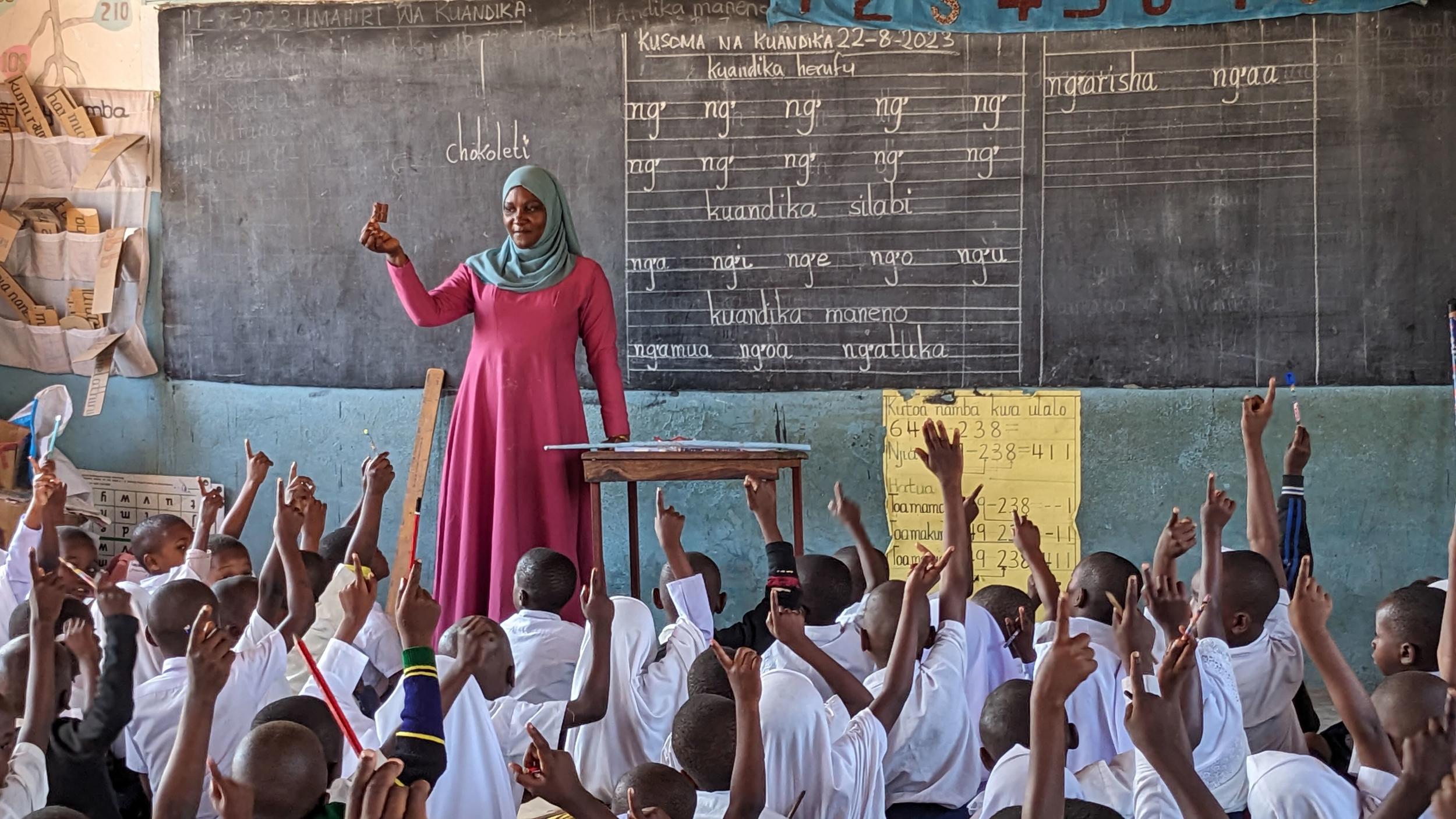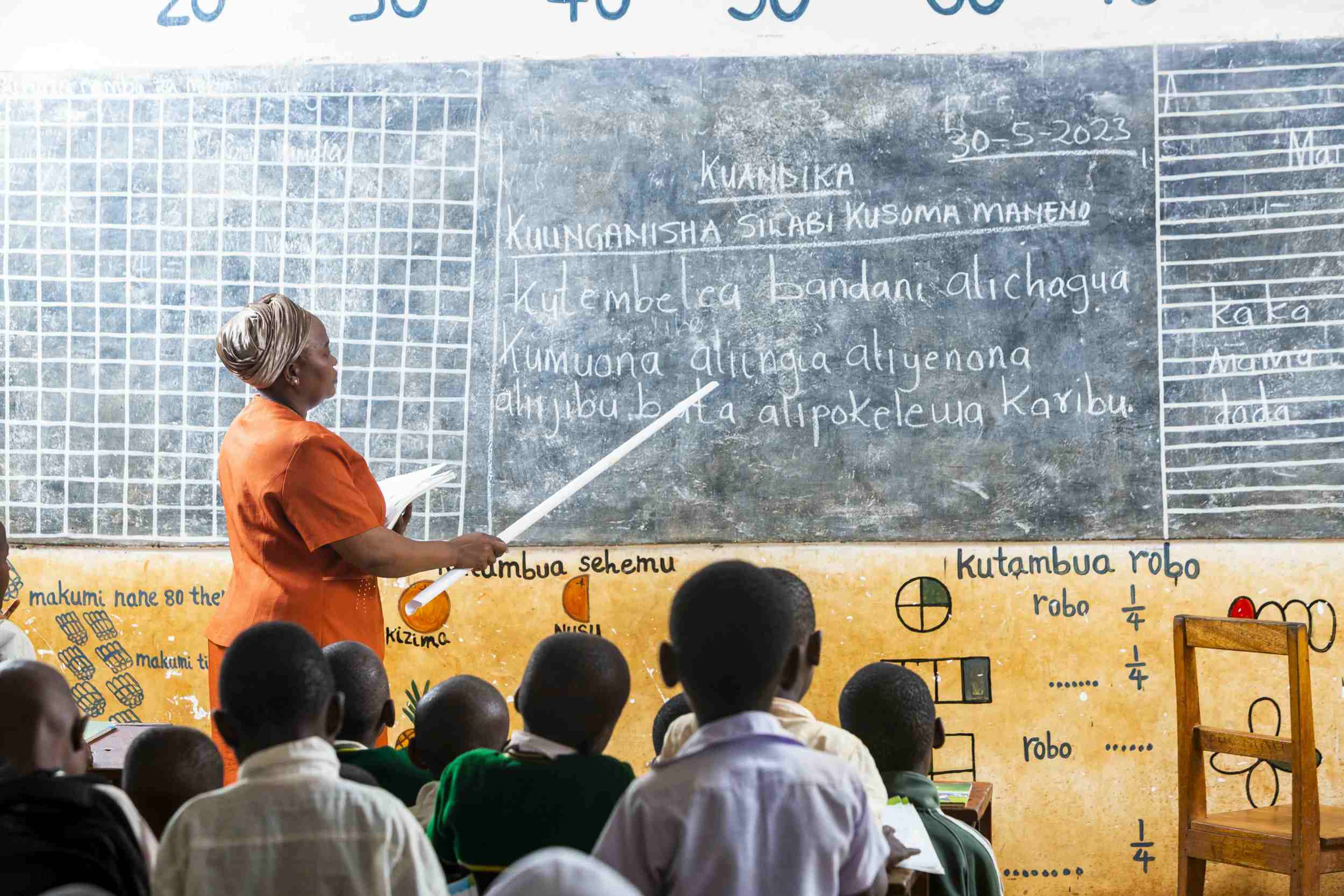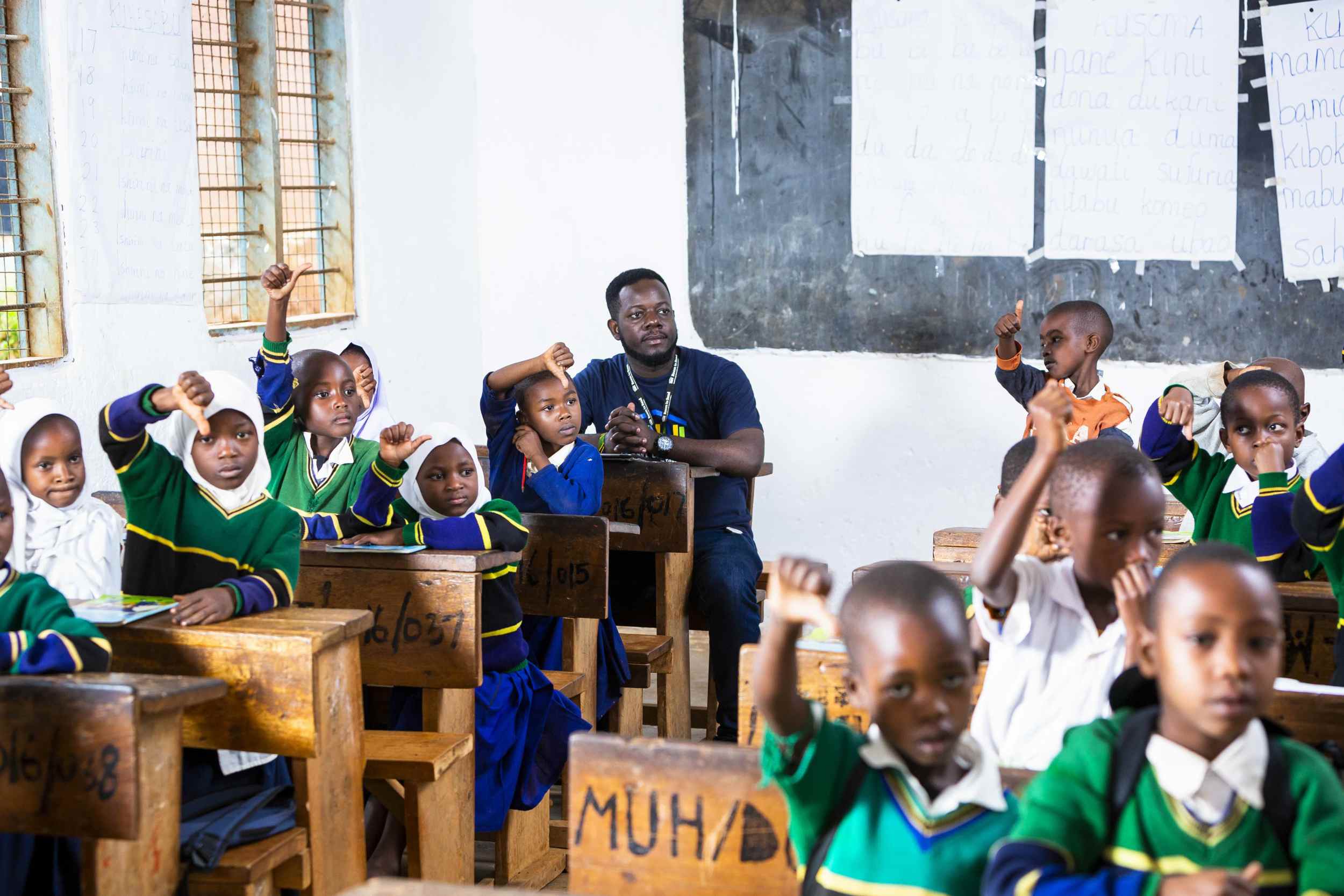“My school is now shining.”
Room to Read’s teacher training helps end early-grade illiteracy in Tanzania | April 19, 2024
Hamidu has been working hard to improve childhood literacy since he started working in primary schools in Tanzania more than five years ago. As a headteacher, Hamidu has devised various strategies to ensure no Grade 1 student advances to Grade 2 without being able to read at grade level. Yet despite his efforts, Hamidu has counted more than 25 children over the last five years who were allowed to continue from Grade 1 to 2 without a strong mastery of early grade reading and writing skills.
Salama started as a Grade 1 teacher at the same primary school in 2019. Like Hamidu, she had experienced feelings of distress and frustration over seeing so many students move through the grades without strong literacy skills. She knew that teachers in her school attended on-the-job trainings, but the results remained the same. In 2022 alone, 37 students out of 350 finished Grade 1 unable to read and write.
In 2023, Room to Read partnered with Hamidu and Salama’s school to implement our Literacy Program. Soon after, Hamidu and Salama noticed a change. Grade 1 teachers, headteachers and government partners were provided Room to Read training based on the science of reading, using the five components of literacy. In this holistic approach to teaching reading and writing, children are taught to hear, identify and manipulate sounds in spoken words (phonemic awareness). As they learn to connect those sounds with letters (phonics), children are able to sound out words and read decodable texts and stories to build their vocabulary, fluency and comprehension skills.
Each child at the school was provided a learner’s book, and teachers received a structured teacher’s guide to support their teaching and assessment practice. Teachers also receive frequent support and coaching from Room to Read's literacy facilitators. With a friendly approach to classroom observation, feedback and follow-up, teachers are continuously supported to improve their teaching process and maximize the learning experience for children.
 Salama stands at the front of her Grade 1 class and teaches a literacy lesson.
Salama stands at the front of her Grade 1 class and teaches a literacy lesson.
"My school is now shining," Hamidu shared. "In 2023, we enrolled 288 Grade 1 students, and by the end of the year, only nine are still struggling with their reading and writing. We are so thankful for the learner’s books and teacher’s guides because they have been helpful in teaching instruction and improving literacy skills for the children."
The pass rate at Hamidu’s school increased a notable 8 percent between the 2022 to 2023 academic years. And, Hamidu noted, when students advanced to Grade 2, they had grade-appropriate literacy skills.
Hamidu added that teachers applied the knowledge acquired from Room to Read trainings to help 37 students who moved to Grade 2 last year unable to read and write. Of those students, 30 had mastered reading and writing by October of 2023.
Salama is equally grateful for the instruction the Room to Read trainings have provided.
"Room to Read’s Grade 1 instruction teacher training is the best and most powerful tool I have received in my entire career," she said. "The application of their teaching methodology and well-organized materials are helpful. The teacher’s guide is simple to use; it is very interactive and fun for students, especially the use of different games during phonemic and phonological awareness .... Learning letters, blending syllables and words has helped children read sentences and stories."
 A Room to Read primary school teacher leads a literacy lesson in Tanzania.
A Room to Read primary school teacher leads a literacy lesson in Tanzania.
Room to Read’s Literacy Program, she added, has also helped teachers build lesson facilitation skills. The pedagogy approach of "I do – We do – You do" ensures that the teacher first models the skill or competency. The teacher and the children then practice the skill together. Finally, children have an opportunity to practice the skill independently. Throughout this learning process, the teacher can assess children's understanding of the skill and make appropriate decisions regarding next steps. This practice, she noted, was not in place before Room to Read partnered with the school.
"I wish the whole district could learn the Room to Read’s phonic approach," Salama said. "This would end the problem of children moving to upper classes struggling to read and write.
"The Room to Read approach to teaching reading is a systematic approach that teaches from simple to complex. Children are taught the sounds of letters, they blend the sounds into syllables orally and through writing, then blend the syllables into words. The blending and reading of words prepares them to learn vocabulary, read texts with fluency and do comprehension activities." she continued. "This influences easy teaching and learning for both teachers and children. We need to adopt this approach in non-project schools as well to eradicate illiteracy in the whole district."
 A Room to Read literacy facilitator, who supports educators with ongoing training, observes a literacy lesson.
A Room to Read literacy facilitator, who supports educators with ongoing training, observes a literacy lesson.
We know that how we teach is just as important as what we teach. Room to Read's data-backed instruction method combines the science of learning to read with the magic of loving to read.
Support a child's education today.



